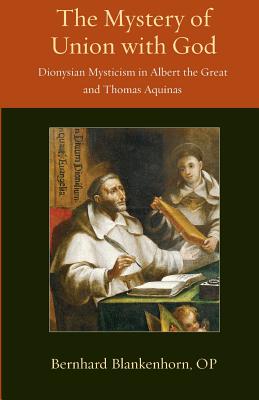"A highly detailed study. Ample in scope, richly documented, and equipped with an excellent bibliography and indexes, Blankenhorn's erudite study will be a worthwhile addition to any academic library that supports an advanced program in theology." --Catholic Library World
"Blankenhorn brilliantly renders the great service of addressing the much-neglected role of St. Albert the Great, whose influence on his better-known student, St. Thomas Aquinas, is often acknowledged but seldom explored. . . . This book provides much-needed insight into the intellectualist strand of medieval Dionysian reception, running parallel to the affectivist strand in such authors as Thomas Gallus and St. Bonaventure. . . . Blankenhorn's interpretation also attends to the theological assumptions, implications, and perduring significance of this thirteenth-century Dominican tradition of mystical theology, thus rendering it available for fruitful contemporary engagement." --Boyd Taylor Coolman, Boston College "Bernhard Blankenhorn's book is a welcome addition to the study of high scholasticism. He gives us a well-researched account of links between the work of Dionysius, Albert the Great, and Thomas Aquinas on the question of union with God. Blankenhorn offers a fresh point of entry for the study of Thomas's theology, as well as expanding significantly our understanding of his sources, showing how the context within which Thomas's thought developed is richer and more complex than is often allowed." --Vivian Boland, OP "An erudite work that renews our understanding of Albert's and Thomas's mystical theologies. The analysis of 'union above mind' is truly masterly.. . . Blankenhorn beautifully shows the integration of metaphysics, epistemology, Trinitarian theology, Christology, and eschatology within Thomas's doctrine of mystical union." --Gilles Emery, OP, University of Fribourg| FindBook |
有 1 項符合
The Mystey of Union With God: Dionysian Mysticism in Albert the Great and Thomas Aquinas的圖書 |
 |
The Mystey of Union With God: Dionysian Mysticism in Albert the Great and Thomas Aquinas 作者:Blankenhorn 出版社:Catholic University of America Press 出版日期:2016-05-02 語言:英文 規格:平裝 / 544頁 / 21.6 x 14 x 2.8 cm / 普通級 |
| 圖書館借閱 |
| 國家圖書館 | 全國圖書書目資訊網 | 國立公共資訊圖書館 | 電子書服務平台 | MetaCat 跨館整合查詢 |
| 臺北市立圖書館 | 新北市立圖書館 | 基隆市公共圖書館 | 桃園市立圖書館 | 新竹縣公共圖書館 |
| 苗栗縣立圖書館 | 臺中市立圖書館 | 彰化縣公共圖書館 | 南投縣文化局 | 雲林縣公共圖書館 |
| 嘉義縣圖書館 | 臺南市立圖書館 | 高雄市立圖書館 | 屏東縣公共圖書館 | 宜蘭縣公共圖書館 |
| 花蓮縣文化局 | 臺東縣文化處 |
|
|
圖書介紹 - 資料來源:博客來 評分:
圖書名稱:The Mystey of Union With God: Dionysian Mysticism in Albert the Great and Thomas Aquinas
|




![塔木德:猶太人的致富聖經[修訂版]:1000多年來帶領猶太人快速累積財富的神祕經典 塔木德:猶太人的致富聖經[修訂版]:1000多年來帶領猶太人快速累積財富的神祕經典](https://media.taaze.tw/showLargeImage.html?sc=11100697818)






